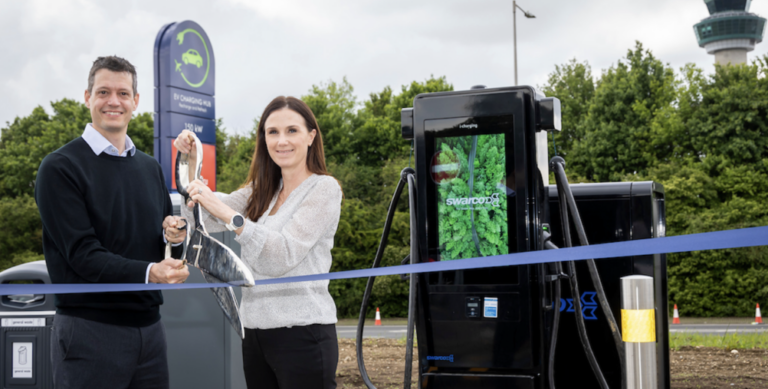Government Invests Over £120 Million to Expand Electric Vehicle Adoption
February 25, 2025
Drivers, businesses, and individuals with accessibility needs are set to benefit from a substantial £120 million in government funding aimed at accelerating the adoption of cleaner transportation options, including electric vans, wheelchair-accessible vehicles, taxis, and motorbikes. The announcement, made on Tuesday, February 25, by Future of Roads Minister Lilian Greenwood, signifies a continued commitment to supporting the transition to zero-emission vehicles.
This new funding builds upon existing initiatives designed to make the switch to electric vehicles (EVs) easier and more cost-effective. Significant portions of the investment will be channeled into the Plug-in Van Grant, which is being extended for another year. This extension will allow businesses and van drivers to receive grants of up to £2,500 for smaller vans (up to 2.5 tonnes) and up to £5,000 for larger vans (up to 4.25 tonnes). The Plug-in Van Grant has been instrumental in the sale of over 80,000 electric and zero-emission vans since its inception, and the government’s continued support for businesses nationwide is evident.
To streamline the transition, the Department is also removing the requirement for additional training for electric vans. This move is aimed at reducing costs and red tape for businesses, making it easier to hire drivers for electric van operations. This change addresses a previous disparity where such training was mandated for zero-emission vans but not for their petrol and diesel counterparts. The changes are intended to encourage broader adoption.
This investment forms part of a larger allocation of over £2.3 billion designed to support both industry and consumers in embracing the shift to EVs. This comprehensive approach is designed to create high-paying jobs, bolster businesses across the country, tap into a multibillion-pound industry, elevate the UK as a clean energy leader, and deliver the goals outlined in the government’s Plan for Change.
Future of Roads Minister Lilian Greenwood emphasized the wide-ranging benefits of the funding: “From van drivers and businesses to drivers needing accessibility, bikers and cabbies, we are making switching to electric vehicles easier, faster, and cheaper. By making the transition to zero emissions a success, we’re helping to drive growth all over the UK, putting more money in people’s pockets and rebuilding Britain to deliver our Plan for Change.”
The government is also extending support for taxi drivers, offering £4,000 for the purchase of iconic zero-emission black cabs and other models. This initiative aims to make journeys cleaner and more comfortable for passengers. The Plug-in Wheelchair Accessible Vehicle Grant cap is also being increased from £35,000 to £50,000, providing consumers with a wider range of vehicle choices and removing barriers for disabled passengers, enabling easier and more stress-free travel.
The funding also includes positive news for bikers, who will continue to benefit from a £500 grant to purchase an electric motorbike for another year.
Beyond direct financial aid, the government is also supporting the transition with strong incentives to purchase zero emission vehicles. The government is providing generous incentives to purchase zero emission vehicles in the Autumn Budget by maintaining generous ZEV incentives in the Company Car Tax regime.
The shift to electric vehicles is gaining momentum. In 2024, over 382,000 electric cars were sold – a fifth more than the previous year – and the growth of over a fifth from 2023, illustrating record numbers of people making a supported switch to electric vehicles. This is a positive trend, with one in three used electric cars priced below £20,000 and 21 brand new electric cars with a recommended retail price (RRP) under £30,000.
Owning an electric car has also become increasingly economical, as drivers can save up to £750 annually if they primarily charge at home compared to petrol. The UK’s charging infrastructure is expanding rapidly, with over 74,000 public chargers currently available, including nearly 20,000 added just last year, which is a record.
With the availability of 24/7 helplines, contactless payment options, and up-to-date charge point locations, charging has become easier than ever. With £200 million announced at Budget to continue powering the charpoint rollout and £6 billion of private investment in the pipeline, the UK’s charging network will continue to see tens of thousands of chargers added in the coming years, so that EV owners can drive with the confidence that they’re never too far from a socket.
The government has been closely working with car manufacturers, recently concluding a consultation that gathered industry input on restoring the 2030 phase-out date for new petrol and diesel cars, as outlined in the manifesto.
The average range of a new electric car is now 236 miles, equivalent to about two weeks of driving for the average person, while emitting only one-third of the greenhouse gas emissions of a petrol car over its lifetime.




